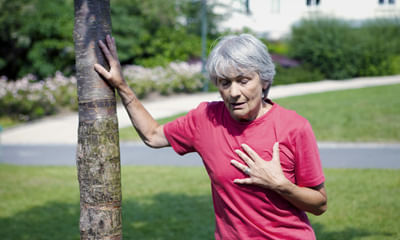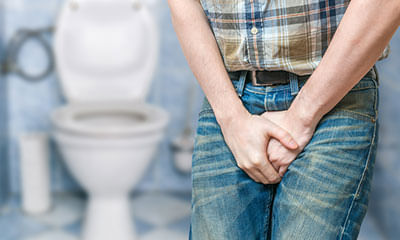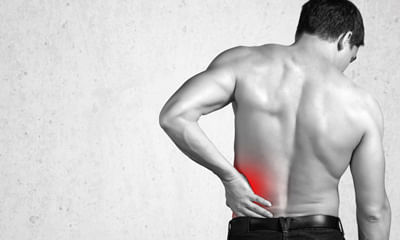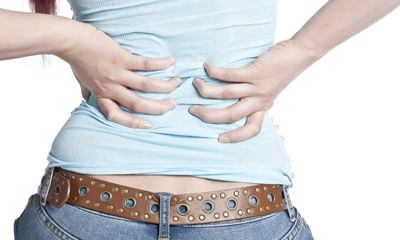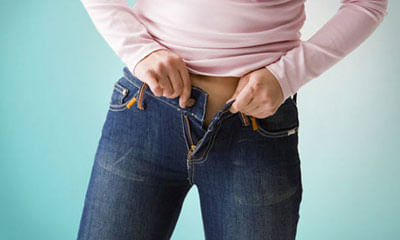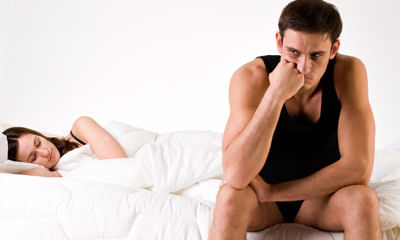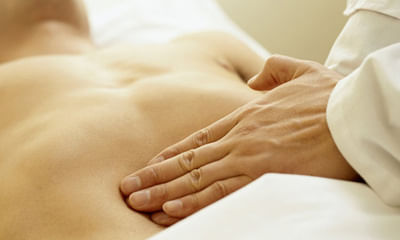Abdominal Burning Pain
I have been suffering from abdominal pain from last 1 year which started on jan 2023. After gallstone surgery my abdomin ...
Ask Free Question
Yes to conclude your symptoms we will require your blood test, biopsy, colonoscopy, mri etc based on the about only one can suggest you if you are having cancer or not.
Hello i'm b mukherjee. Age 29 yrs. I've esophagus motility disorder. I felt severe pain and burning sensation left side ...
Ask Free Question
I understand the complexity of your symptoms associated with esophagus motility disorder and functional heartburn. It's crucial to approach your condition comprehensively, considering your desire for pregnancy, here are few things to consider: medication management: esomeprazole 40 mg / esogress is a proton pump inhibitor (ppi) used to manage acid reflux. Its efficacy can vary among individuals. It's vital to adhere to the prescribed dosage and discuss any recurring symptoms with your healthcare provider. Lifestyle modifications: implement lifestyle changes to minimize acid reflux triggers. This includes avoiding large meals, acidic or spicy foods, and lying down after eating. Elevating the head of your bed can assist in reducing nighttime reflux. Dietary adjustments: collaborate with a dietitian to identify specific trigger foods and customize your diet accordingly. This can significantly impact the frequency and intensity of acid reflux and associated symptoms. Continuous monitoring: maintain a detailed symptom diary to track patterns, triggers, and medication effectiveness. Regularly share this information with your healthcare provider for informed decision-making. Pregnancy planning: it's commendable that you're considering pregnancy. Discuss your plans with your obs/gynaec doctor to explore acid reflux management strategies that are safe during pregnancy. They may recommend alternative medications or lifestyle modifications. Nasal and throat symptoms: mucus accumulation in the throat and nose can be associated with acid reflux. Ensuring proper acid suppression is crucial. Additionally, consider nasal saline irrigation to alleviate nasal congestion and mucus buildup. Ear, nose, and throat (ent) assessment: given the pressure and symptoms in your throat, nose, and ear, consider consulting an ent specialist for a comprehensive evaluation. They can assess for any structural or inflammatory issues contributing to your symptoms. Alternative medications or therapies: if esomeprazole alone is insufficient, your healthcare provider may explore alternative medications or therapies. This could include combining medications or trying different acid-suppressing drugs. Remember, managing acid reflux is a nuanced process, and individual responses to treatments vary. Regular follow-ups with your healthcare provider are essential to assess progress and adjust your treatment plan accordingly. If you have specific concerns or require further tailored advice, feel free to initiate a private consultation. Your well-being is paramount, and i'm here to support you on your health journey.
My brother is 23 years old guy. He has uti from last 2 months. There are 100+ pus cells, burning and pain in penis, and ...
Ask Free Question
Get a USG abdomen and pelvis done for kidney' ureters and urinary bladder. Besides it will rule out prostatitis as well.. Regards
I have pain in lower back, butt, legs and feet. And also burning sensation in the legs and feet. And I am not able to wa ...
Ask Free Question
If you are suffering from burning pain or tingling sensation in hands or feet; sharp shooting pain in legs; numbness in hands or feet, then you might be suffering from neuropathic pain. What is a neuropathic pain? Neuropathic pain is a special type of pain which occurs when there is damage to nerve fibres, which produces tingling or burning type of pain. It is of two types: 1. Peripheral neuropathic pain: it occurs when there is an injury to peripheral nerve fibres (a-delta or c-fibers) which carries pain sensation to the brain (thalamus) for interpretation. 2. Central neuropathic pain: it occurs due to sensitization of central pain interpreting mechanisms (thalamus) to falsely feel pain when peripheral nerve fibres are no longer sending pain impulses to them. Worldwide-estimates of the prevalence of neuropathic pain is 7% i.e. 7 persons out of 100 people are suffering from different types of neuropathic pain. Symptoms: •tingling sensation or feeling of ants crawling under skin •burning sensation •sharp shooting pain or electric current-like sensation •stabbing pain •dull pain with numbness or heaviness reasons for neuropathic pain: •diabetes mellitus: most common cause worldwide due to uncontrolled blood sugar levels, causing damage to nerve fibres. •alcohol consumption/cigarette smoking: damage to nerve fibres or damage to blood vessels supplying nerve fibres. Burning pain in feet •neck pain/low back pain/glutei pain •vit. B12 deficiency •chemotherapy for cancer patients •post-herpes virus infection •post-spine surgery •post-amputation •diseases like spinal cord injury, multiple sclerosis, hiv, lead toxicity, etc. Special neuropathies: 1. Carpal tunnel syndrome: tingling, burning sensation in hand which occurs due to compression of median nerve in the wrist area. It occurs in women especially due to pregnancy, hypothyroidism, diabetes, etc. And in men due to improper position of the wrist during working on computers. 2. Cervical radiculopathy: pain in neck and shoulder region (which increases with neck movements), along with sharpshooting pain radiating from neck to hand occurs in cases of cervical radiculopathy. This is due to compression of the cervical nerve root by disc prolapse, facet subluxation, muscle spasm, trauma, etc. 3. Lumbar radiculopathy: pain in lower back or glutei region with sharp shooting pain radiating from hip to leg/foot region, occurs in cases of lumbar radiculopathy or sciatica. This is due to compression of lumbar nerve root or sciatic nerve by disc prolapse, facet joint, trauma, hypertrophied ligamentumflavum, piriformis syndrome, etc. 4. Meralgiaparesthetica: tingling or burning sensation in front of the thigh, occurs due to compression of lateral cutaneous nerve of thigh, near waist region. Usual causes are tight or constrictive clothing at waist region, prolonged sitting, protuberant abdomen, etc. Prevention of neuropathy: 1. Avoid alcohol consumption and cigarette smoking. 2. Maintain ideal body weight/bmi (body mass index) 3. Lifestyle changes: daily exercises (>30 minutes per day) or brisk walking or swimming; avoid prolonged sitting or standing (>30 minutes). 4. Food/diet should have following components: •green vegetables e.g. Spinach, fenugreek leaves (methi), radish, etc •coloured vegetables e.g. Tomato, carrot, capsicum (green/red), ladies-finger (bhindi) •milk products e.g. Milk, buttermilk, curd, cheese (paneer) •protein-rich foods e.g. Fish, egg, chicken, pulses (daal) •fibre-rich foods e.g. Bran, oats, brown-rice •fruits e.g. Apple, orange, guava, papaya, pomegranate, berries 5. Blood sugar control (in diabetics) 6. Care of feet: •regular inspection of feet (with mirror) •comfortable, well-fitted shoes •regular consultation with a podiatrist •treatment of wounds, foot deformities 7. Adequate sleep 8. Warm water bath (increases blood flow to the affected area) treatment: •consult pain medicine specialist. •neuropathic painkillers e.g. Amitriptyline, pregabalin, gabapentin, capsaicin, duloxetine, etc. •vit. B12 supplements, anti-oxidants, multi-vitamins. •transcutaneous electrical nerve stimulation (tens) •acupuncture •relaxation and yoga •neural prolotherapy.
Hello sir ,i am vilika swu ,22 years old ,i was having pain in the back from long time n wen I went for ultrasound I had ...
Ask Free Question
You need to diagnose whether the back pain is originally due to back issues or it is due to kidney issues. Kidney pain vs. Back pain because your kidneys are located toward your back and= underneath your ribcage, it may be hard to tell if the pain you’re experiencing in that area is coming from your back or your kidney. The symptoms you’re having can help you figure out which is the source of the pain. The location, type, and severity of the pain are some of the things that will be different depending on whether the pain is from a problem in your kidneys or your back. How to identify kidney painkidney pain is most often caused by a kidney infection or a stone in the tubes coming out of your kidney. If the pain is coming from your kidney, it will have these features: where the pain is located kidney pain is felt in your flank, which is the area on either side of your spine between the bottom of your ribcage and your hips. It usually occurs in one side of your body, but it can occur in both sides. Type of pain kidney pain is usually sharp if you have a kidney stone and a dull ache if you have an infection. Most often it will be constant. It won’t get worse with movement or go away by itself without treatment. If you’re passing a kidney stone, the pain may fluctuate as the stone moves. Radiation of the pain sometimes the pain spreads (radiates) to your inner thigh or lower abdomen. Severity of the pain kidney pain is classified according to how bad it is — severe or mild. A kidney stone usually causes severe pain, and the pain from an infection is usually mild. Things that make it better or worse typically, nothing makes the pain better until the problem is corrected, such as by passing the stone. Unlike back pain, it usually won’t change with movement. Accompanying symptoms if you have a kidney infection or a kidney stone, you may also experience: •fever and chills •nausea and vomiting •cloudy or dark urine •an urgent need to urinate •pain when you urinate •a recent infection in your bladder •blood in your urine (this can happen with an infection or kidney stones) •small kidney stones that look like gravel in your urine how to identify back pain back pain is more common than kidney pain and is usually caused by a problem in the muscles, bones, or nerves in your back. Has the following features: where the pain is located back pain can occur anywhere on your back, but it’s most commonly located in your lower back or one of your buttocks. Type of pain muscle pain feels like a dull ache. If a nerve has been injured or irritated, the pain is a sharp burning sensation that may travel down your buttock to your lower leg or even your foot. Muscle pain may affect one or both sides, but nerve pain usually only affects one side. Radiation of the pain nerve pain may spread to your lower leg. Pain from a muscle usually stays in the back. Severity of the pain back pain is described as acute or chronic based on how long you’ve had it. Acute pain lasts days to weeks, subacute pain lasts six weeks to three months, and chronic pain lasts longer than three months. Things that make it better or worse back pain may get worse with movement or if you sit or stand for a long time. It may get better if you switch positions or walk around. Accompanying symptoms other symptoms you may experience with back pain include: •the painful spot looking swollen and feeling tender to the touch •a muscle spasm in the painful area •numbness or weakness in one or both of your legs (if the pain is due to a nerve issue) if you find you have back pain and can’t hold your urine or bowel movements, something is pressing on your spinal nerves, and you should be evaluated immediately. This condition, called caudaequina syndrome, can cause severe long-term damage to your spinal nerves if not treated right away. 6 imbalances that cause pain—and how to fix them "pain is a medical condition and a medical issue, says brett jones, owner of applied strength in pittsburgh who is certified for the functional movement screen, a system of tests and cor rective exercise strategies. "it's a warning sign. The pain is there to tell you something's wrong.
I took manforce sildenafil tablet last week on wednesday and have been facing side effects as frequent urge to urinate b ...
Ask Free Question
Usually these are not side effects of sidenafil. You need a urine culture and sensitivity and ultrasound abdomen and pelvis for further management.
I got usg kub + pv report today and impression is bladder wall is thickened but no focal lesions are detected. Can anybo ...
Ask Free Question
There can be many reasons for thickening of the bladder wall. If you are having symptoms like pain in the lower abdomen, frequent or painful or burning sensation during passing urine it may be due infection the bladder.
I have white discharge like thick white curd juice and itching problem bhi hai and mild abdominal pain bhi hota kabhi ka ...
Ask Free Question
Hi, Lybrate user, since, you have no itching, irritation, burning with the viscid discharge, it denotes leucorrhoea. •tk, plenty of water to hydrate your body. •go for meditation to reduce your stress to nourish your body including your reproductive orgons. •your diet be easily digestible on time to check gastric disorder. •tk, apples, carrots, papaya, pomegranate, spinach, almonds, walnuts to feel energised inorder to improve haemoglobin level. •tk, homoeopathic medicine:@ pulsatilla 30 -5 drops, thrice. •consult, privetly for better and fast recovery.•avoid, junk food, alcohol and nicotine. •tk, care.
When I sitting my anus burning and pain in lower abdomen and back. I have constipation problem. I am on drug thyronorm 7 ...
Ask Free Question
locally apply anovate/ shield/oxeurate cream any one. applicator not to use. use index finger first on butthole then gentaly push inside rotate the finger so all anal mucosa covered with ointment two times a day for 2-3 weeks for complete healing. as u r a hypothyroidism person constipation is common. for constipation u r taking duphalac is good. for pain abdomen tab cyclopam three times or as required. pan d one in empty stomach for two weeks. (means after brushing teeth).
Hello doctor, I have burning sensation while passing urine and burning sensation in my urethra even I have urgency of ur ...
Ask Free Question
In the meantime, here are a few general suggestions that may help alleviate your discomfort: stay hydrated: drink plenty of water to help flush out your urinary system and dilute your urine, which may reduce the burning sensation. Avoid irritants: avoid consuming beverages or foods that may irritate your urinary system, such as caffeine, alcohol, spicy foods, and acidic foods. Urinate frequently: emptying your bladder regularly can help reduce the concentration of irritants and bacteria in your urinary tract. Practice good hygiene: make sure to keep your genital area clean and dry to prevent the spread of bacteria. Avoid using harsh soaps or hygiene products that may irritate the urethra. Apply a warm compress: placing a warm compress or taking a warm bath may provide temporary relief for discomfort in your testicles.

